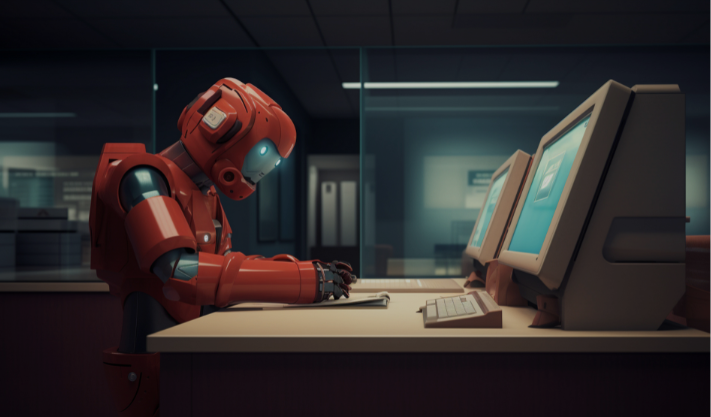AI and Automation in the UK Workplace: Innovation or Job Killer?
The rapid integration of Artificial Intelligence (AI) and automation technologies in the UK workplace has sparked a vigorous debate: are these technologies powerful tools for innovation, or are they accelerating the erosion of traditional jobs? While there is no one-size-fits-all answer, the reality likely lies somewhere in between. AI and automation are transforming industries, creating new opportunities, but also challenging workers to adapt to an evolving labour market.
Over the last decade, the UK has invested heavily in digital innovation. From manufacturing to retail, healthcare to finance, AI-powered systems are streamlining processes, reducing human error, and boosting productivity. In logistics, for example, automated systems in warehouses allow companies like Amazon to process orders at unprecedented speeds. In healthcare, AI-driven diagnostics support clinicians in identifying illnesses more accurately and swiftly.
The productivity gains are undeniable. A 2023 report by PwC projected that AI could add up to £232 billion to the UK economy by 2030. For businesses, AI enables cost reduction, increased efficiency, and scalability. Moreover, automation often takes over repetitive or dangerous tasks, improving workplace safety and allowing humans to focus on more strategic, creative, or interpersonal aspects of their roles.
However, the downside cannot be ignored. Automation’s ability to replace jobs—particularly in sectors like manufacturing, transportation, and customer service—has raised alarm bells. The Office for National Statistics (ONS) has estimated that around 7.4% of UK jobs are at high risk of automation. Low-skilled and routine roles are especially vulnerable. This disproportionate impact risks exacerbating existing economic inequalities and regional disparities, particularly in areas already struggling with industrial decline.
The pace of change is also a concern. Workers often lack the training or resources needed to transition into new roles created by AI. While the tech sector may create new jobs—such as data analysts, AI ethicists, and machine learning engineers—these roles typically require higher education and specialised skills. Without strong public policy and investment in reskilling and lifelong learning, many workers could be left behind.
To mitigate the risks, the UK government and private sector must work collaboratively. This includes expanding vocational training programmes, providing accessible digital skills education, and supporting industries most vulnerable to disruption. Additionally, regulations should ensure that AI deployment aligns with ethical standards, transparency, and fair treatment of workers.
It’s also worth noting that AI can complement human work rather than replace it entirely. Many organisations are adopting a hybrid approach where machines handle data-heavy or repetitive elements, while humans bring judgment, empathy, and creativity to the table. For example, in law firms, AI can review legal documents quickly, but lawyers are still needed for strategy and negotiation.
In conclusion, AI and automation are neither solely innovative nor purely job killers—they are transformative forces. Their impact on the UK workplace will depend largely on how businesses, workers, and policymakers respond. If managed wisely, AI can be a catalyst for growth and innovation, rather than a threat to employment. But without thoughtful preparation, the risks to workers—and to social cohesion—could be significant.
Published: 6th June 2025
For more article like this please follow our social media Twitter, Linkedin & Instagram
Also Read:
10 Easy Ways UK Young Drivers Can Save on Car Insurance
UK Energy Prices in 2025: Relief or More Pressure Ahead?
Is the UK Still a Safe Haven for Foreign Investors?























